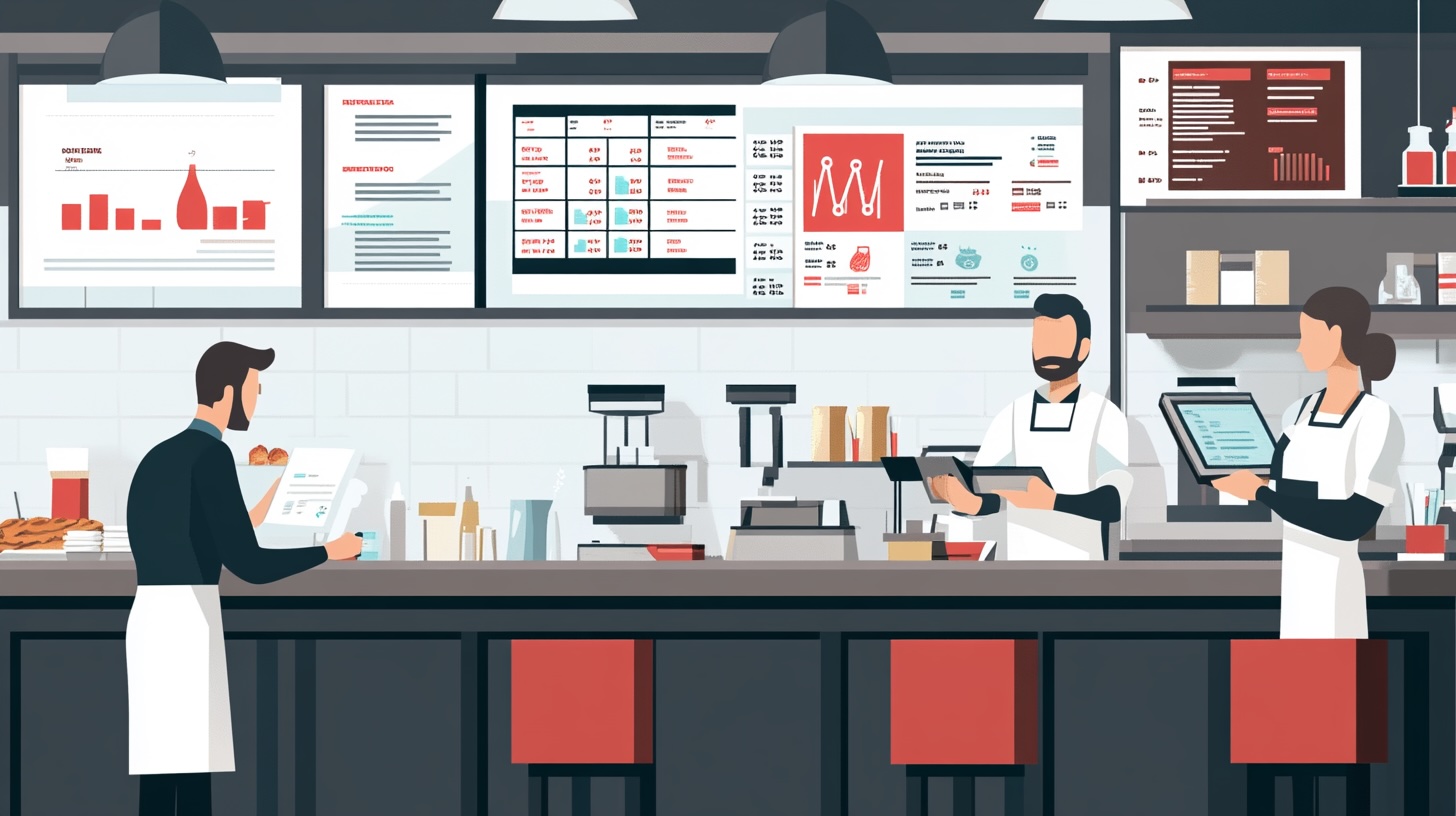How Data Can Transform Your Restaurant Management

In modern restaurant management, data is a powerful tool for improving efficiency and profitability. The ability to collect and analyze detailed data can provide valuable insights that help make informed and strategic decisions. A management system that integrates data analytics can transform how you operate your restaurant.
Advanced management systems collect a wealth of valuable data, from sales patterns to customer preferences. Analyzing this data allows for the identification of improvement opportunities, menu adjustments according to demand, and optimized staff schedules. For example, data can reveal which dishes are most popular and which do not sell well, allowing menu adjustments to maximize profitability.
Additionally, data on customer preferences can be used to personalize service and offer specific promotions, enhancing customer satisfaction and loyalty. Detailed reports on restaurant performance provide a clear view of areas needing improvement and successful strategies, enabling managers to make real-time adjustments.
Leveraging Data for Operational Efficiency
One of the key benefits of data analytics in restaurant management is the ability to enhance operational efficiency. By tracking sales patterns, managers can identify peak hours and adjust staff schedules accordingly, ensuring that the restaurant is adequately staffed during busy times and not overstaffed during slower periods. This not only optimizes labor costs but also ensures that customers receive timely and attentive service.
Inventory management is another critical area where data can make a significant impact. Advanced management systems can track inventory levels in real-time, alerting managers when stock is running low and predicting future needs based on historical data. This helps prevent both overstocking and stockouts, reducing waste and ensuring that popular menu items are always available.
Enhancing Customer Experience Through Personalization
Data analytics can also play a crucial role in enhancing the customer experience. By collecting data on customer preferences and dining habits, restaurants can offer personalized recommendations and promotions. For instance, if a customer frequently orders a particular dish, the restaurant can send them special offers related to that dish or suggest similar items they might enjoy. This level of personalization makes customers feel valued and appreciated, increasing their likelihood of returning.
Moreover, understanding customer preferences allows restaurants to tailor their menu to meet demand better. If data shows that certain dishes are consistently popular, the restaurant can highlight these items on the menu or create special promotions around them. Conversely, if certain items are not selling well, the restaurant can consider removing them from the menu or experimenting with different recipes.
Real-Time Decision Making and Adaptability
One of the most significant advantages of integrating data analytics into restaurant management is the ability to make real-time decisions. Detailed performance reports provide managers with up-to-date information on various aspects of the business, from sales figures to customer feedback. This enables them to identify issues and opportunities quickly and make informed decisions to address them.
For example, if a particular promotion is not generating the expected results, managers can analyze the data to understand why and adjust the strategy accordingly. Similarly, if customer feedback indicates dissatisfaction with a specific aspect of the service, managers can take immediate action to resolve the issue and prevent it from impacting the restaurant’s reputation.
Competitive Advantage Through Data-Driven Insights
In a competitive restaurant industry, leveraging data analytics can provide a significant edge. Restaurants that use data to drive their decision-making processes are better positioned to adapt to changing market conditions and customer preferences. This proactive approach allows them to stay ahead of the competition and continuously improve their operations.
Implementing technologies that facilitate data collection and analysis not only simplifies daily operations but also offers a competitive edge by providing critical decision-making information. By integrating data analytics into daily management, restaurants can improve operational efficiency, reduce costs, and increase customer satisfaction, leading to long-term success.

Future Trends in Data Analytics for Restaurants
The role of data in restaurant management is continually evolving, with new technologies and trends emerging that promise to further enhance efficiency and profitability. One such trend is the use of artificial intelligence (AI) and machine learning algorithms to analyze data and provide predictive insights. These technologies can help restaurants anticipate customer preferences, optimize pricing strategies, and even predict equipment maintenance needs, reducing downtime and improving overall efficiency.
Another emerging trend is the integration of data analytics with other digital tools, such as online ordering platforms and customer relationship management (CRM) systems. This integration allows restaurants to have a holistic view of their operations and customer interactions, enabling them to deliver a seamless and personalized dining experience.
In conclusion, data is a transformative tool in modern restaurant management. By collecting and analyzing detailed data, restaurants can make informed decisions that enhance operational efficiency, personalize the customer experience, and gain a competitive edge. As technology continues to evolve, the potential for data analytics to drive success in the restaurant industry will only grow, making it an essential component of any forward-thinking restaurant’s strategy.
By investing in advanced data analytics systems and embracing a data-driven approach to management, restaurants can not only survive but thrive in an increasingly competitive market. The key to success lies in harnessing the power of data to make smarter, more strategic decisions that lead to improved profitability and customer satisfaction.
 isper
isper